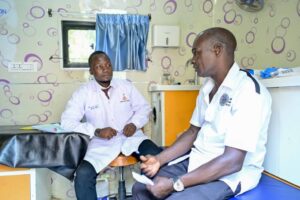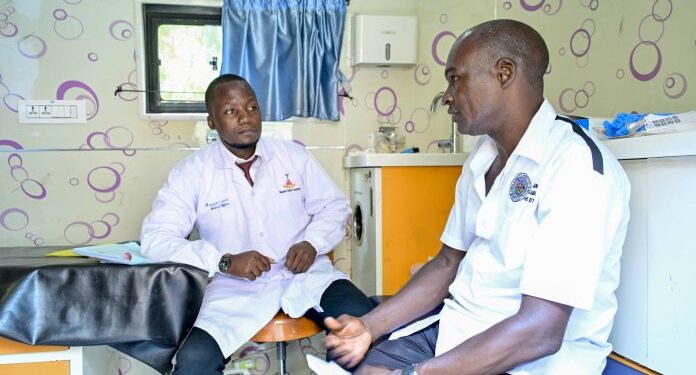
The State House Medical Department has held a health camp this week under its HIV and Tuberculosis (TB) mainstreaming program, aimed at raising awareness and strengthening the fight against both communicable and non-communicable diseases.
The camp brought together government officials, medical experts, civil society actors, and faith leaders to emphasize prevention, testing, and treatment as Uganda works towards ending HIV and AIDS as a public health threat by 2030.
Speaking on behalf of the State House Comptroller, Jane Barekye, the Assistant Commissioner and Head of Human Resources, Benon Twinobusingye, said investing in the health and well-being of workers is key to building national productivity.
“The main objective of this camp is to raise awareness about TB, HIV, AIDS, cancer, and other diseases that threaten our people. The National Development Plan emphasizes health promotion because it is a fundamental human right,” Twinobusingye said.
He warned that Uganda still faces enormous health challenges despite progress in treatment coverage, pointing to worrying statistics.
“We are likely to fall short of our 2030 target of ending HIV and AIDS as a public health threat. TB also continues to take a big toll on the national health budget,” he added.
Dr. Elijah Ssemaganda, Assistant Director at the State House Health Monitoring Unit, called on Ugandans to prioritize regular health checks and blood donation.
“If today we can achieve public awareness and encourage people to go for health checks, then we shall be good to go,” he said.
Representing the Uganda AIDS Commission, Tom Etii applauded President Museveni for his four decades of leadership in the HIV fight, and First Lady Janet Museveni for championing elimination of mother-to-child transmission. He revealed that Uganda currently has 1.5 million people living with HIV, of which 1.3 million are on treatment—a program costing government about 1.4 trillion shillings annually.
However, he noted that 37,000 new infections were recorded last year, driven by multiple sexual partnerships, transactional sex, low condom use, and reluctance among men to test and seek treatment.
“We must practice faithfulness, responsibility, and integrity if we are to curb the spread,” Etii urged.
From the research community, Dr. Flavia Matovu Kiweewa of Makerere University–Johns Hopkins Research Collaboration (MUJHU) highlighted the role of prevention tools like PrEP and new long-acting methods such as the dapivirine vaginal ring. She called for prioritizing pregnant women in treatment programs to stop mother-to-child transmission.
The initiative also won praise after it was revealed that State House has allocated 0.1% of its resources to HIV and TB mainstreaming, a step speakers said should inspire other government institutions.
In closing, health experts urged staff, parents, and communities to take personal health seriously by regularly testing for HIV and other conditions, seeking treatment without fear of stigma, and living responsibly.


















